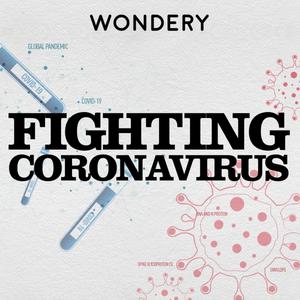
Fighting Coronavirus, from American Innovations
Wondery
When public health is threatened on a mass scale, we have a long history of working together to take on the challenge. As the host of Wondery’s American Innovations, Steven Johnson has told the stories of some of the most crucial breakthroughs in health, medicine, and technology. He’s also the author of one of the seminal books on epidemics, “The Ghost Map.”On this new weekly series, Steven will speak with experts from the worlds of health and technology about how the current moment compares with past pandemics, and what the coming months might look like. What will it take to develop a COVID-19 vaccine? How will our educational system change? How can crowdsourcing help us battle the spread of the coronavirus? We’ve vanquished more dangerous threats before. Let’s roll up our sleeves and tackle this one together.
- 23 minutes 51 secondsLarry Brilliant on Why We Need a Global Covid Response
There are few people who have thought more about pandemics than epidemiologist Larry Brilliant. He worked with the World Health Organization to eradicate smallpox. He’s fought polio and blindness in India. And, in his 2006 TED Prize talk, he warned the audience that a pandemic was coming “within your children or your grandchildren's lifetime.”
He was right. What he couldn’t predict, though, was how mismanaged our response would be – and how quickly we’d set aside the lessons we learned defeating smallpox. As Larry tells Steven, “We have to work together… and we're not doing it so far.”
Watch Larry’s Ted Prize acceptance speech: https://www.ted.com/talks/larry_brilliant_my_wish_help_me_stop_pandemics?language=en
Support us by supporting our sponsors!
Great Courses Plus - Get unlimited access to the entire at thegreatcoursesplus.com/fightingcv.
UV Clean - You can enjoy 15% off plus free shipping on your order of two or more when you visit getuvclean.com and use promo code FIGHTING CV.
See Privacy Policy at https://art19.com/privacy and California Privacy Notice at https://art19.com/privacy#do-not-sell-my-info.
8 September 2020, 9:00 am - 22 minutes 10 secondsEverything You Always Wanted to Know About Vaccines (But Were Afraid to Ask)
The coronavirus has put our lives on pause, but it’s kicked the science behind vaccines into hyperdrive. Science writer Carl Zimmer walks Steven through some of the radical new approaches to making vaccines – and gives his best-case/worst-case scenarios for when a vaccine will be ready. Also: we get answers, kind of, about what’s up with Russia. And Steven drops a Taylor Swift reference.
Read Carl’s latest on the vaccine race in the New York Times:
https://www.nytimes.com/by/carl-zimmer
See Privacy Policy at https://art19.com/privacy and California Privacy Notice at https://art19.com/privacy#do-not-sell-my-info.
18 August 2020, 9:00 am - 18 minutes 47 secondsBack to School
Back-to-school season is here, but students across the country aren’t going anywhere. Anya Kamenetz, NPR’s education correspondent, returns to the show to shed light on the greatest educational crisis of our time. How can we safely reopen schools? And what can we learn from countries that have tried – and failed?
Listen to Anya’s stories for NPR at https://www.npr.org/people/302894536/anya-kamenetz.
See Privacy Policy at https://art19.com/privacy and California Privacy Notice at https://art19.com/privacy#do-not-sell-my-info.
28 July 2020, 9:00 am - 24 minutes 56 secondsHow We Can Still Win
When National Geographic science editor Nsikan Akpan began researching his latest article on the coronavirus, he asked every scientist he talked to the same question: Has the U.S. already lost? Every scientist said no – but we need a better game plan.
On this week’s episode, Nsikan tells Steven what we’ve been getting wrong – and what the new game plan should look like.
You can find Nsikan Akpan’s articles, including “Here’s How To Stop The Coronavirus From Winning,” at natgeo.com/coronavirus.
See Privacy Policy at https://art19.com/privacy and California Privacy Notice at https://art19.com/privacy#do-not-sell-my-info.
7 July 2020, 9:00 am - 24 minutes 25 secondsInside the NBA Bubble
Back in March, the NBA pressed pause on its 2019-20 season. Now, the league wants to pick up where it left off – but with Covid-19 rates on the rise, it’s not going to be easy.
This week, Kavitha Davidson, host of The Lead, walks us through the NBA’s plan to move 16 teams into a “bubble” at the Disney World Resort. What rules will players have to follow? And will the risks to players’ health be worth it?
Check out The Lead, Wondery’s daily sports podcast, at https://podcasts.apple.com/us/podcast/the-lead/id1478448344
See Privacy Policy at https://art19.com/privacy and California Privacy Notice at https://art19.com/privacy#do-not-sell-my-info.
30 June 2020, 9:00 am - 24 minutes 55 secondsForest Fires, Memes, & Covid-19
Forest fires. Ant colonies. Internet memes.
On the surface, they have nothing in common. But, according to network scientist Samuel Scarpino, they’re all complex systems that spread. Sam’s job is to crack the rules underlying their spread, and then apply them to epidemics such as Covid-19.
Read more about Sam’s work in Steven’s New York Times Magazine article, “How Data Became One of the Most Powerful Tools to Fight an Epidemic”: https://www.nytimes.com/interactive/2020/06/10/magazine/covid-data.html
See Privacy Policy at https://art19.com/privacy and California Privacy Notice at https://art19.com/privacy#do-not-sell-my-info.
23 June 2020, 9:00 am - 25 minutes 2 secondsCan We Ditch the Office Forever?
Most CEOs hated the idea of employees working from home. But when the coronavirus hit, they didn’t have a choice. They sent their white-collar workers home before they’d even learned how to mute themselves on Zoom. What happened next surprised everyone. Productivity shot through the roof. Now, companies don’t know whether they should bring workers back to the office, even if they can do it safely.
We’ve invited Clive Thompson, fresh off his piece for The New York Times Magazine about remote work, to talk us through this rapid culture shift. What, exactly, makes remote work so productive? What do we lose when we work in isolation? What new technology will emerge from this moment? And how many of us will ever voluntarily do the 9-to-5 again?
Links:
Clive Thompson, “What if Working From Home Goes On … Forever?”, New York Times Magazine:
And check out Clive's interview on The Next Big Idea about his book "Coders": https://podcasts.apple.com/us/podcast/coders-the-invisible-architects-that-shape-our-lives/id1482067226?i=1000455369916
See Privacy Policy at https://art19.com/privacy and California Privacy Notice at https://art19.com/privacy#do-not-sell-my-info.
16 June 2020, 9:00 am - 25 minutes 54 secondsWhy Covid-19 Disproportionately Kills Black Americans
There’s a saying in public health circles: “When white America sneezes, black America gets pneumonia.” When the coronavirus hit, health care experts knew that black Americans would be the hardest hit. But the numbers were still shocking. Black people make up 12.7% of the U.S. population but have so far made up 22% of its Covid-19-related deaths.
On this episode, Steven talks to reporter Linda Villarosa about the reasons behind those numbers, and her quest to give them a human face in her New York Times Magazine article, “A Terrible Price: The Deadly Racial Disparities of Covid-19 in America.” Along the way, she offers hope that we might be able to turn this current crisis into a call for action.
Articles by Linda Villarosa:
“A Terrible Price: The Deadly Racial Disparities of Covid-19 in America,” New York Times Magazine: https://www.nytimes.com/2020/04/29/magazine/racial-disparities-covid-19.html
“How False Beliefs in Physical Racial Difference Still Live in Medicine Today,” New York Times Magazine: https://www.nytimes.com/interactive/2019/08/14/magazine/racial-differences-doctors.html
“Why America’s Black Mothers and Babies are in a Life-or-Death Crisis,” New York Times Magazine: https://www.nytimes.com/2018/04/11/magazine/black-mothers-babies-death-maternal-mortality.html
See Privacy Policy at https://art19.com/privacy and California Privacy Notice at https://art19.com/privacy#do-not-sell-my-info.
9 June 2020, 9:00 am - 21 minutes 31 secondsCan Your Smartwatch Detect Covid-19?
These days, watches don’t just tell time. Smartwatches like Apple Watch and Fitbit measure your heart rate, count your steps, and track your sleep schedule. According to Dr. Michael Snyder, they can also tell you when you’re getting sick – and potentially spot Covid-19 before you’re even symptomatic.
On this episode, Steven talks to Dr. Snyder, who runs the Center for Genomics and Personalized Medicine at Stanford, about his new study on whether wearables can predict the onset of Covid-19. What has the study learned so far, and what else can your wearables be trained to detect?
To participate in Dr. Snyder’s study, visit https://innovations.stanford.edu/wearables.
Support us by supporting our sponsors!
See Privacy Policy at https://art19.com/privacy and California Privacy Notice at https://art19.com/privacy#do-not-sell-my-info.
3 June 2020, 9:00 am - 21 minutes 52 secondsStopping the Spread of Bad Information
According to the World Health Organization, we’re not just in the midst of a pandemic. We’re living through an “infodemic,” where misinformation is more readily available than facts.
On this episode, Steven talks to Joan Donovan, who studies misinformation in her role as the Director of the Technology and Social Change Research Project at Harvard Kennedy’s Shorenstein Center. Joan shares how conspiracy theories spread and how each of us can practice good information hygiene. It’s not as easy as wearing a mask … but it’s close.
See Privacy Policy at https://art19.com/privacy and California Privacy Notice at https://art19.com/privacy#do-not-sell-my-info.
26 May 2020, 9:00 am - 22 minutes 11 secondsWill We Remember 2020 A Century From Now?
While the U.S. has countless WWI memorials, it has almost none dedicated to the 1918 flu pandemic. But the pandemic claimed six times as many American lives as WWI.
On this episode, Steven talks to historian Nancy Bristow, author of American Pandemic: The Lost Worlds of the 1918 Influenza Epidemic, about the blind spot in America’s collective memory. Why did we forget 1918’s pandemic? And how well will future generations remember this one?
Support us by supporting our sponsors!
Keeps - Get your first month free when you go to keeps.com/fightingcv.
See Privacy Policy at https://art19.com/privacy and California Privacy Notice at https://art19.com/privacy#do-not-sell-my-info.
19 May 2020, 9:00 am - More Episodes? Get the App
Your feedback is valuable to us. Should you encounter any bugs, glitches, lack of functionality or other problems, please email us on [email protected] or join Moon.FM Telegram Group where you can talk directly to the dev team who are happy to answer any queries.
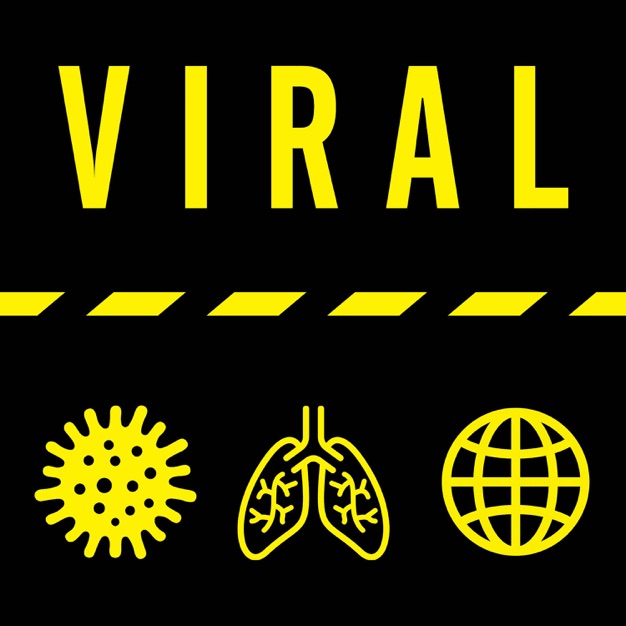 Viral: Coronavirus
Viral: Coronavirus
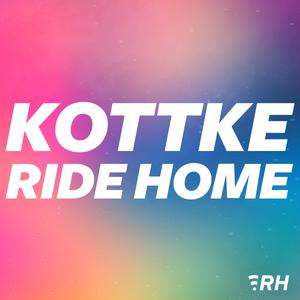 Kottke Ride Home
Kottke Ride Home
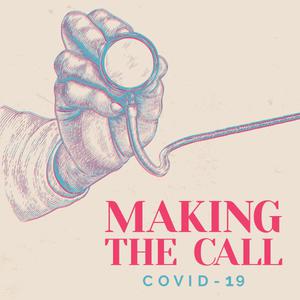 Making the Call
Making the Call
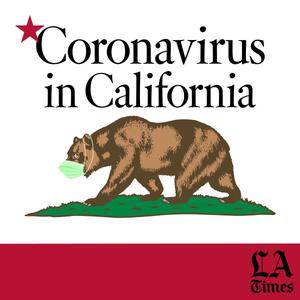 Coronavirus in California
Coronavirus in California
 The Daily Smile
The Daily Smile